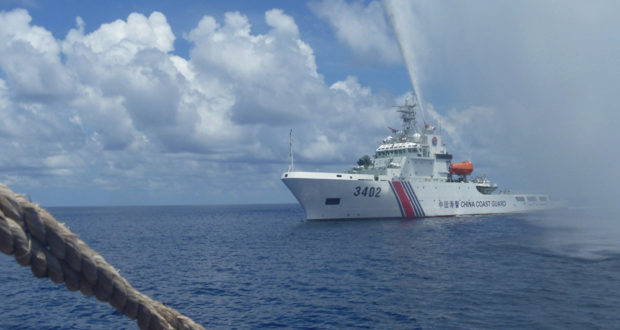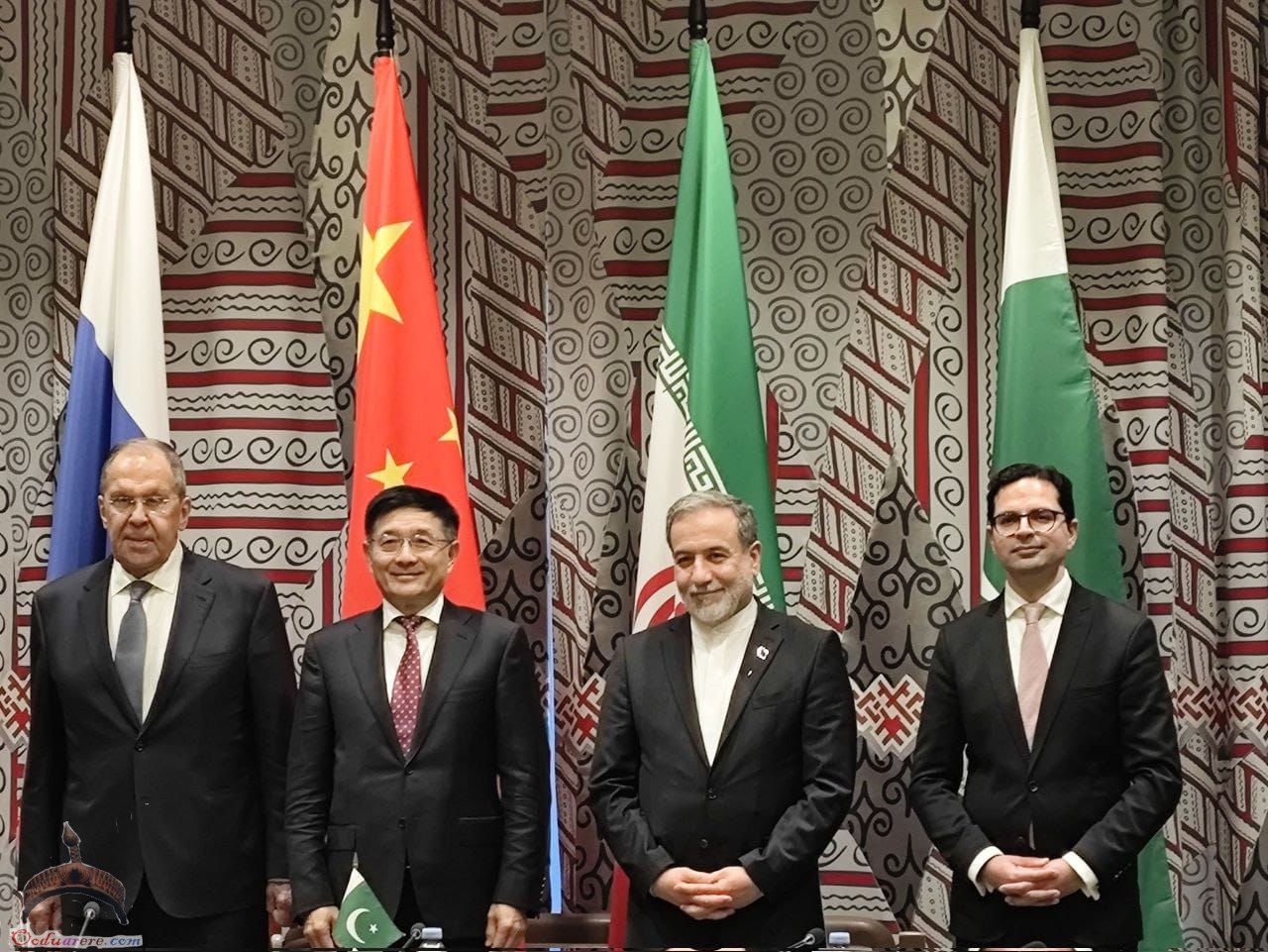by Pepe Escobar (cross-posted with the Asia Times by special agreement with the author)
Modi and Xi meeting could have a crucial SCO subplot focusing on security and economic cooperation
All bets are off on the outcome of India Prime Minister Narendra Modi’s potentially ground-breaking meeting with Chinese President Xi Jinping this Friday and Saturday in Wuhan.
Things have not exactly started in auspicious mode.
After a meeting in Beijing of foreign ministers represented at the Shanghai Cooperation Organization (SCO), India, once again refused to support the New Silk Roads, known as the Belt and Road Initiative (BRI) in the final communiqué.
Every other SCO member – represented by the foreign ministers of Russia, Kazakhstan, Kyrgyzstan, Uzbekistan, Tajikistan and Pakistan – did.
So here we go again – back to the interminable, intractable India-Pakistan soap opera.
Both India and Pakistan were admitted as full members of the SCO in 2017. The SCO, led by China and Russia, is the premier Eurasian mechanism dealing not only with security matters but also expanding, in these past few years, towards economic cooperation.
New Delhi though argues that one of BRI’s key connectivity projects – the China-Pakistan Economic Corridor (CPEC) – runs through sections of Kashmir that it considers occupied territory.
Still, the Chinese Foreign Ministry is putting out the best PR possible on the informal Modi-Xi meeting. They’re bound to discuss CPEC in detail. Formally, any breakthrough may be announced at the next SCO summit in June, in Qingdao, China.
Don’t touch the Iran nuclear deal
This key China-India rift inside the SCO actually mirrors the much bigger clash between BRI and the so-called “Indo-Pacific” strategy pushed by Washington in conjunction with India, Japan and Australia. New Delhi seems to consider BRI and Indo-Pacific mutually exclusive.
BRI though is a vast pan-Eurasian economic integration project while Indo-Pacific is essentially a vehicle for military containment of China.
Economically, New Delhi is concentrating on the International North-South Transport Corridor (INSTC) – which aims to link Russia with India via Iran. Additionally, India’s investment in Chabahar port in Iran aims to configure its own New Silk Road to Afghanistan and Central Asia, bypassing Pakistan.
And that brings us to a crucial SCO subplot. Every member-nation – with special relevance in the case of BRICS members China, Russia and India – supports the JCPOA, or the Iran nuclear deal. Iran, currently an observer, is bound to be admitted as a full SCO member by 2019.
When it comes to the classic SCO staple of fighting terrorism, Iran also fits (heavily supported by the three BRICS). Tehran is actively fighting Daesh in both Iraq and Syria, as well as all forms of jihadism in Afghanistan. All these key players – the three BRICS plus Iran – favor a SCO-led solution for Afghanistan.
On top of it, earlier this week Russian Prime Minister Dmitry Medvedev signed an agreement to set up a free trade zone between Iran and the Russian-led Eurasia Economic Union (EAEU).
So Iran is a key hub of BRI; a partner of India in the INSTC; an imminent member of the SCO; and it’s now linked to the EAEU. This acronym-fest spells out Eurasia integration – and fits, economically, into the “extensive contingency plans” evoked by Iranian President Hassan Rouhani in case the Trump administration abandons the JCPOA.
China, Russia and India have clearly identified how Iran relinquished practically 90% of its nuclear program and in the end was “rewarded” by increased US sanctions. As for Iran’s ballistic missile program – which was never part of the JCPOA – that’s much less advanced compared to Russia, India or Pakistan for that matter. The message by the three BRICS/SCO member nations is clear; the JCPOA is untouchable.
And the winner in the South China sea is…
As for India relying on the non-SCO “Indo-Pacific” club as a counterpunch to BRI, seems like New Delhi has not read the fine print.
So it’s quite enlightening to examine the extensive questions posed by the US Senate to Admiral Philip Davidson, the expected nominee to lead the US Pacific Command (PACOM).
To sum it all up, here’s Davidson’s Top Three:
- “China is pursuing advanced capabilities (e.g., hypersonic missiles) which the United States has no current defense against. As China pursues these advanced weapons systems, US forces across the Indo-Pacific will be placed increasingly at risk.”
- “China is undermining the rules-based international order.”
- “In short, China is now capable of controlling the South China Sea in all scenarios short of war with the United States.”
That unveils Indo-Pacific as essentially a strategy of containment applied to the South China Sea – even as Beijing is also very much implicated in consolidating the Maritime Silk Road across the Indian Ocean.
It’s unrealistic to expect India to come up with a far-reaching pan-Eurasia economic integration project that even barely matches BRI. New Delhi’s best bet is to fight jihadism in conjunction with the SCO while economically investing in the INSTC. No BRI? That’s India’s choice.
 Ọmọ Oòduà Naija Gist | News From Nigeria | Entertainment gist Nigeria|Networking|News.. Visit for Nigeria breaking news , Nigerian Movies , Naija music , Jobs In Nigeria , Naija News , Nollywood, Gist and more
Ọmọ Oòduà Naija Gist | News From Nigeria | Entertainment gist Nigeria|Networking|News.. Visit for Nigeria breaking news , Nigerian Movies , Naija music , Jobs In Nigeria , Naija News , Nollywood, Gist and more









